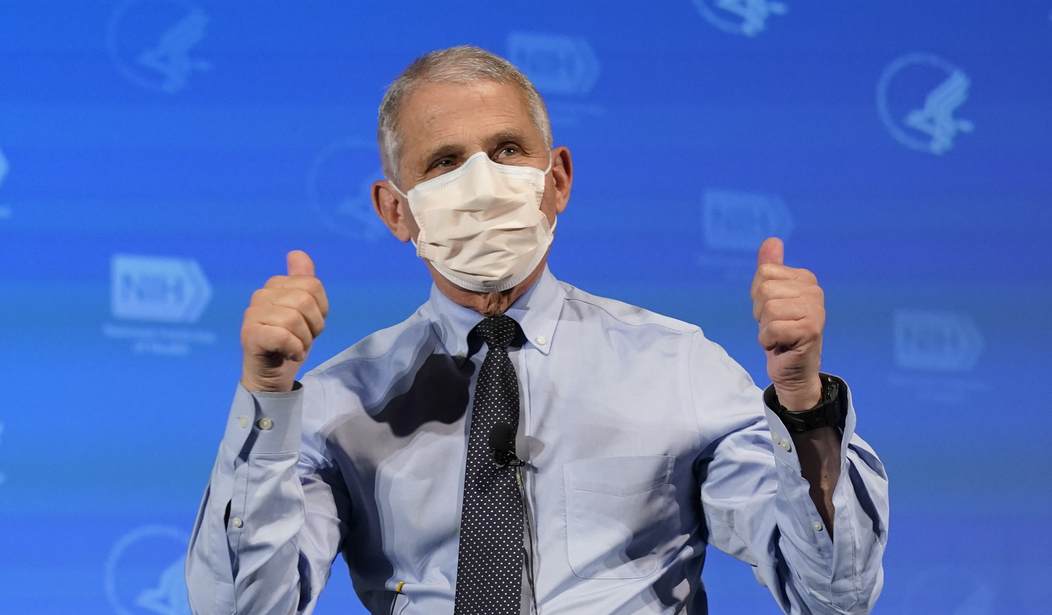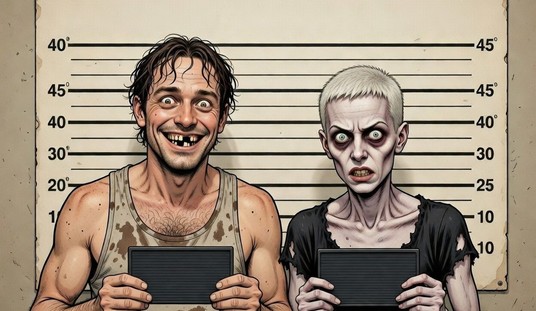In an utterly predictable survey result, American’s trust in the public health system has plummeted during the COVID-19 pandemic. Flip-flops, guidance that makes no sense if vaccines work, and science-denying guidelines such as the continued masking of young children all contribute to this finding. As I predicted in April:
The damage that the politicization of everything related to the pandemic, from masks to medications to school closures and indoor dining, will only be measured by the next public health crisis. For Americans in states where schools opened, and indoor activities restarted months ago, trust in the health bureaucracy, along with the media-appointed “experts,” has plummeted. The same is true for anyone who was following the research on COVID-19 closely.
A survey from the Robert Wood Johnson Foundation and Harvard’s T.H. Chan School of Public Health reports that while Americans think public health is essential, they are concerned about how the system functions. Americans also express more trust in their state and local public health officials. Researchers took this survey before the great mask debate—after the CDC’s about-face and the revelations regarding gain-of-function research by the NIH. Many of these results have likely fallen further.
Key findings from the summary:
- About seven in ten adults (71%) favor substantially increasing federal spending on improving the nation’s public health programs, with (72%) believing the activities of public health agencies are extremely or essential to the nation’s health.
- Yet, the public’s rating of the nation’s public health system and medical system has changed over time, with positive ratings of the public health system declining from 43% to 34% from 2009 to 2021.
- Favorable ratings of the medical system increased from 36% to 51% from 2009 to 2020. The public currently trusts nurses, healthcare workers, and doctors more than public health institutions and agencies.
- In 2021, 54% of the public gave the CDC positive job performance ratings (excellent or good), while 59% did in 2009. The approval for the Food and Drug Administration (FDA) is (48%), and the National Institutes of Health (NIH) is (47%).
- When it comes to the reliability of the information at the state level, about two-thirds of adults (65%) say that on balance, they think the information provided by their state health department is trustworthy.
- At the local level, about three-quarters of adults (74%) say that they think the information provided by their local health department is reliable.
- Unlike public health experts, most of the public does not currently identify three major problems facing society — climate change, gun violence, and racism — as primary responsibilities for public health agencies to handle.
These results provide some logical conclusions as well as some obvious recommendations. Americans want public health institutions they can trust. However, the bureaucratic nature of the federal agencies has become evident. Most of the heads of these agencies have not provided direct care to a patient in decades. Revelations, like the influence of teachers’ unions on CDC guidelines for COVID-19, increase the view of them as political.
Public health officials weighing in on political issues like gun control, climate, and issues of race, reinforces the view that these professionals are political. During the pandemic, 1,200 public health officials signed a statement saying that protests for racial justice were more important than observing COVID-19 restrictions. Yet, they condemned anti-lockdown protests where business owners and workers petitioned their government peacefully to relax restrictions.
The government response to future health emergencies should include many more physicians, policy experts, and researchers with recent clinical experience. The survey indicates that these professionals are more trusted than bureaucrats. The incentives and principles they operate under are also very different. Clinicians bring the perspective of having to look patients directly in the eye, having vowed to first do no harm. Health policy experts have a scientific background and can translate data into public policy. Researchers are oriented to find answers and solutions to clinical problems.
While these professionals may have their individual political preferences, those are not the driving ethos of the practice of their craft. It is not clear whether we can say the same about the political appointees in charge of the federal agencies. In many cases, it appears to be just the opposite. Surveys of epidemiologists during COVID-19 show that they are exceptionally risk-averse as a group. That bias needs to be balanced with other specialties and perspectives, preferably from outside the government.
In addition, social media companies need to allow for the free flow of information. This need is even more important as we watch legacy media outlets doing a complete U-turn on the lab-leak origin theory for COVID-19. These media organizations have demonstrated that they’re happy to reject theses that an administration or politician they don’t like puts forth. To further those ends, they hunt for and use information from just about any source, no matter how questionably scientific or qualified. All you need to do is review the saga surrounding hydroxychloroquine to see this lunacy.
One analysis estimates that Facebook has removed 18 million posts related to COVID-19 and labeled over 160 million as false or misleading. YouTube has similarly censored doctors and researchers who disagree with government agencies. Censorship is not how rigorous science is done. It is scientism, the precise opposite of data-driven, evidence-based science. Despite the censorship, 68% of voters believe it is likely that COVID-19 escaped from a Chinese laboratory, and the public is increasingly aware of the successes of states that remained open during the pandemic, where overall results are the same or better than the draconian lockdown states. Suppression and censorship don’t work.
As I also predicted:
The next time someone from the CDC, the NIH, or the surgeon general’s office takes the stage to tell us of an imminent threat, how seriously will these Americans take them? About as seriously as they take the boy who cried wolf.
The only way to prevent a catastrophe is to change how we manage and disseminate information about a public health emergency. If our leaders don’t take this need seriously, the results will be deadly.










Join the conversation as a VIP Member